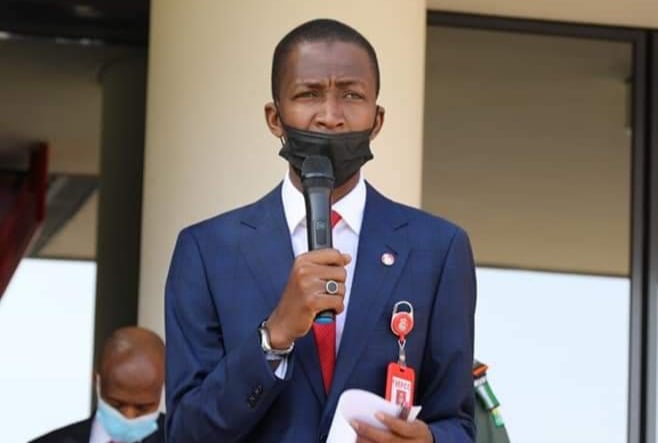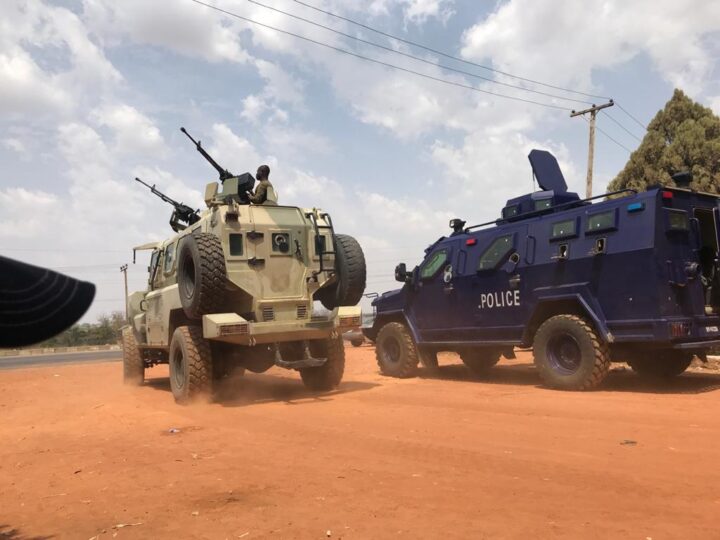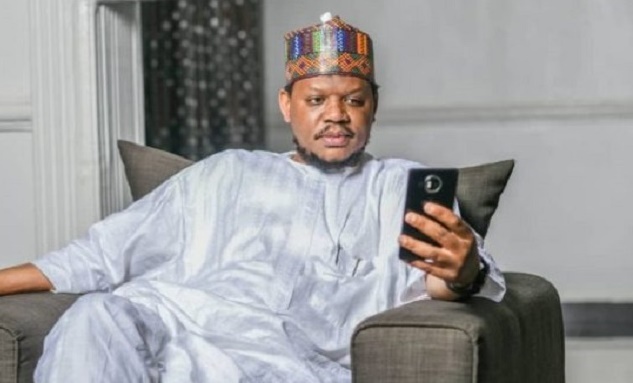Getting justice in Nigeria comes with several hurdles, especially cases that involve brutality, unlawful arrest, torture, and detention by law enforcement agencies.
The enforcement of court judgements in cases involving human rights violations meted by law enforcement agencies is a tall order.
Those who suffer unjustly in the hands of Nigeria’s security operatives often have to pass through several legal obstacles to get justice. When the brutality leads to the death of the victim, the family members would take over the race for getting justice.
According to section 35 of the 1999 constitution, persons unlawfully arrested, detained, or brutalised by law enforcement agencies are entitled to receive compensation.
Advertisement
Section 35 (6) states that “any person who is unlawfully arrested or detained shall be entitled to compensation and public apology from the appropriate authority or person; and in this subsection, the appropriate authority or person means an authority or person specified by law”.
But how easy is it to get justice?
After a judge in charge of a case may have delivered judgement with compensation attached, the victims often have to fight tooth and nail to get any form of settlement.
Advertisement
In some cases, efforts to ensure that the court judgement is enforced in terms of payment of compensation usually fail.
JUSTICE HURDLE: SHERIFFS AND CIVIL PROCESS ACT 2004
Before a money judgement against government agencies can be paid, it must be in line with the provisions of the Sheriffs and Civil Process Act 2004.
Stakeholders in the Nigerian criminal justice system have argued that the provisions of the act make it difficult for victims of fundamental human rights violations to get compensation after a court order.
Advertisement
Section 84 (1) of the act states that: “Where money liable to be attached by garnishee proceedings is in the custody or under the control of a public officer in his official capacity or in custodia legis, the order shall not be made under the provisions of the last preceding section unless consent to such attachment is first obtained from the appropriate officer in the case of money in the custody or control of a public officer or of the court in the case of money in custodia legis, as the case may be.”
Subsection 2 of the law provides more context on the “appropriate officer” in subsection 1.
It states that the appropriate officer is the attorney-general of the federation (AGF) or the attorney-general of the state.
This provision implies that before money judgement can be effected, the attorney-general of the federation or the attorney-general of the state must give assent.
Advertisement
In cases involving security operatives, the attorney-general of the federation must assent as the security operatives are under the purview of the federal government.
But getting the AGF to approve the order is another tall order. To get the AGF’s approval, some victims usually approach the court for a mandamus order to compel the AGF to act.
Advertisement
If the office of the AGF finally approves the order, the victim will still need to overcome another obstacle.
After the AGF’s hurdle, the governor of the Central Bank of Nigeria (CBN) must approve the order to deduct the amount from the law enforcement agency’s bank accounts.
Advertisement
In some cases, compensation for victims of fundamental human rights violations usually ends at the table of the AGF without approval.
AFFECTED PERSONS
Advertisement
On February 6, 2008, Samson Adekoya, a herbal medicine practitioner, was arrested by police officers in Lagos over an alleged robbery.
Adekoya was detained in the custody of the disbanded special anti-robbery squad (SARS).
On February 11, 2008, he fell ill and died in the custody of SARS and was buried at the Ikorodu cemetery.
His family was informed of his death on February 26, 2008.
Bilikisu Adekoya, the deceased’s wife, through their counsel, Access to Justice (A2J), a non-governmental organisation that helps citizens get justice, petitioned the commissioner of police and chief judge of Lagos state and requested an inquiry into the death of Adekoya.
On March 12, 2019, Oluremi Oguntoyinbo, a judge of the federal high court, Lagos judicial division, ordered that the police should pay the deceased’s family the sum of N25 million as damages for the unlawful killing of Adekoya.
In a bid to ensure compliance with the judgement, Access to Justice wrote two letters in September and November 2020 to the AGF’s office, seeking consent to enable the judgement creditors garnish the money, as required under section 84 of the Sheriff and Civil Process Act.
To date, the office of the attorney-general of the federation has not consented to the order.
Another case is that of Bashiru Olojede & ANOR. VS. IGP & 3 ORS.
On October 1, 2009, Rotimi Phillips, a 27-year-old mechanic; Friday Uti, a 35-year-old mechanic; and Ibrahim Olojede, a 28-year-old commercial bike operator, were shot at by police officers while in the company of friends at 21, Olonode street, Alagomeji, Yaba, Lagos.
Olojede immediately died from the gunshot, while Philips and Uti were taken away by the police officers despite the injuries sustained from the gunshot and left untreated at Adekunle police station, Yaba. Philip died the following day, while Uti died about two weeks later at the Lagos State University Teaching Hospital (LASUTH) Ikeja.
A decade later, on March 12, 2019, Oluremi Oguntoyinbo, a judge of the federal high court, Lagos, awarded the sum of N135, 244, 500 as damages for the brutal and unlawful shooting and killing of Olojede, Philips, and Uti.
Two years after the ruling, families of the deceased are yet to receive the compensation as the attorney-general of the federation has not given consent.
‘GREATEST OBSTACLE’ TO ENFORCEMENT OF HUMAN RIGHTS
Access to Justice has worked on several cases in which the legislation has hindered compensation to victims of police brutality.
The NGO describes it as the greatest obstacle to the enforcement of human rights and asked the national assembly to abrogate section 84 of the act, adding that the legislation continues to hinder justice dispensation.
“If the law remains enforceable, it will continue to clog and obstruct efforts to reform law enforcement and security services, and scale back the culture of impunity in those establishments,” Joseph Otteh, convener of the NGO, said.
“When courts adjudicate claims asserting the violation of constitutional rights and award monetary reliefs against governmental institutions or agencies, it is expected that these institutions will abide by the judgments and willingly pay up.
“Not so for a lot of agencies! Often, judgment creditors have to subsequently apply to the court for an order garnishing funds from the accounts of any adjudged debtor institution or agency to meet the judgment award.
“However, citing and using this legislation, public institutions including law enforcement and security agencies have resisted efforts to garnish funds in their accounts on the basis of the SCPA.”
NO COMMENT FROM AGF
TheCable reached out to Umar Gwandu, spokesperson of Abubakar Malami, attorney-general of the federation, to find out why the AGF’s office is yet to approve the garnishee orders for monetary compensation of victims of police brutality.
Gwandu initially responded and asked that a text message be sent on the issue. After the message was sent, he failed to respond and also ignored subsequent calls.






